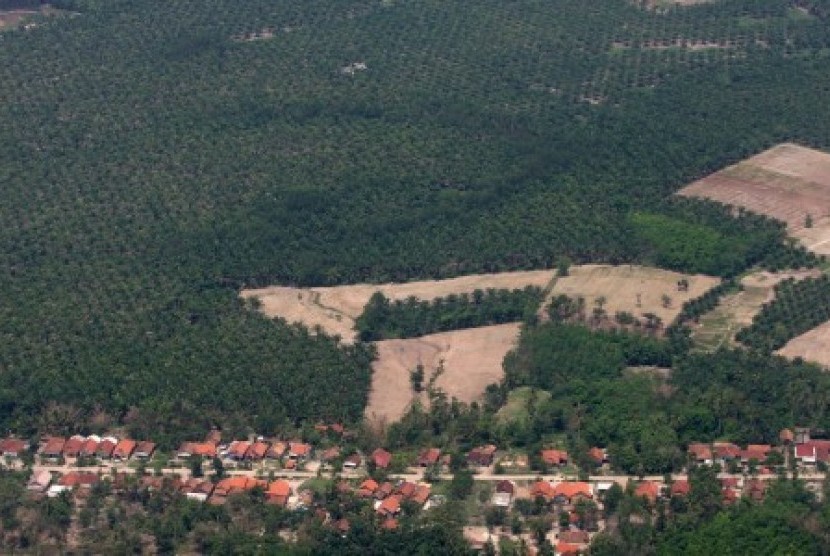REPUBLIKA.CO.ID, LONDON -- Indonesia is continuing its discourse on palm oil with the European Parliament, the European Commission, and the European Council ahead of the trilogue negotiations on renewable energy in February. To maximize political pressure on the European Parliament, the Indonesian embassy in Brussels has built an alliance with the embassies of palm oil-producing countries.
"Among others Brazil, Ecuador, Guatemala, the Honduras, Colombia, Ghana, Nigeria, Kenya, Thailand and Malaysia," embassy economic function official Andi Sparingga told Antara here on Friday.
He revealed that a joint letter from the heads of palm oil-producing countries' missions has been sent to the European Parliament as a form of "protest." The European Parliament has approved a resolution in a plenary session on a proposal report as a reference for the European Parliament and the European Council regarding the promotion of the use of renewable energy sources, with 492 votes supporting, 88 rejecting, 107 abstaining, and 64 not casting votes/absent, on Thursday.
Also read: Jokowi asks EU to end discrimination against palm oil
The Indonesian government rejected the European Parliament's discriminatory report that proposes phasing out palm oil-based biofuels by 2021. The palm-oil producing nations claim that the decision is against the principles of fairness and free trade and leads to a plant apartheid because the proposal's deadline is almost a decade earlier than that for other crop-based biofuels, which is in 2030.
A collective demarche will also be presented directly to the president of the European Parliament, Antonio Tajani, ahead of the trilogue between the European Parliament, the European Commission and the European Council in February to discuss the EU policy after the voting on the report.
With the adoption of the resolution, the European Parliament has endorsed the proposal for a target in the use of renewable energy, fixed at 35 percent for the European Union in mixed energy and 12 percent for transport use by 2030.
The European Parliament also agreed to phase out first generation biofuels (from food and feed crops) by 2030 and biofuel from palm oil by 2021. The endorsement of the report will be used as a basis (mandate) for the European Parliament in the trilogue with the European Commission and the European Council, which will take place one or two months after the vote in the European Parliament.
In other words, the report is not yet final (in the form of a directive that binds EU member countries). The final decision will be determined by the results of the trilogue series of negotiations.
Indonesia and the European Union are still conducting EU-CEPA negotiations. The fourth negotiation is scheduled in Indonesia from February 19 to 23. One of the important parts of the negotiations is the chapter on trade and sustainable development, which reflects strong commitment from the two parties to promote the sustainability aspect of trade.
In this case, Indonesia and the European Union have agreed to discuss trade in connection with sustainability, including market access for sustainable products from Indonesia. For Indonesia, the three sectors that need attention are sustainable wood, sustainable fisheries, and palm oil.


